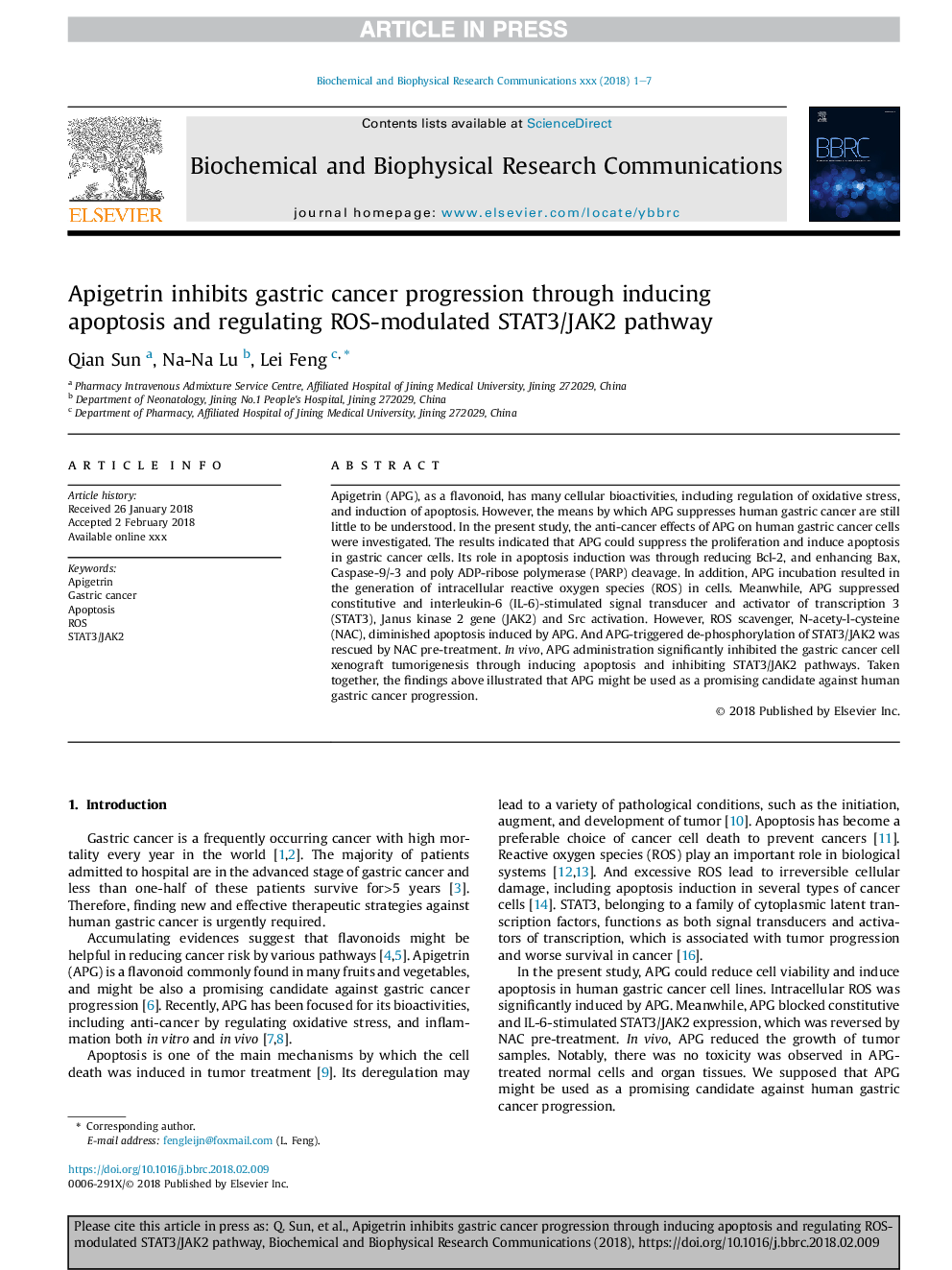| Article ID | Journal | Published Year | Pages | File Type |
|---|---|---|---|---|
| 8293747 | Biochemical and Biophysical Research Communications | 2018 | 7 Pages |
Abstract
Apigetrin (APG), as a flavonoid, has many cellular bioactivities, including regulation of oxidative stress, and induction of apoptosis. However, the means by which APG suppresses human gastric cancer are still little to be understood. In the present study, the anti-cancer effects of APG on human gastric cancer cells were investigated. The results indicated that APG could suppress the proliferation and induce apoptosis in gastric cancer cells. Its role in apoptosis induction was through reducing Bcl-2, and enhancing Bax, Caspase-9/-3 and poly ADP-ribose polymerase (PARP) cleavage. In addition, APG incubation resulted in the generation of intracellular reactive oxygen species (ROS) in cells. Meanwhile, APG suppressed constitutive and interleukin-6 (IL-6)-stimulated signal transducer and activator of transcription 3 (STAT3), Janus kinase 2 gene (JAK2) and Src activation. However, ROS scavenger, N-acety-l-cysteine (NAC), diminished apoptosis induced by APG. And APG-triggered de-phosphorylation of STAT3/JAK2 was rescued by NAC pre-treatment. In vivo, APG administration significantly inhibited the gastric cancer cell xenograft tumorigenesis through inducing apoptosis and inhibiting STAT3/JAK2 pathways. Taken together, the findings above illustrated that APG might be used as a promising candidate against human gastric cancer progression.
Keywords
Related Topics
Life Sciences
Biochemistry, Genetics and Molecular Biology
Biochemistry
Authors
Qian Sun, Na-Na Lu, Lei Feng,
